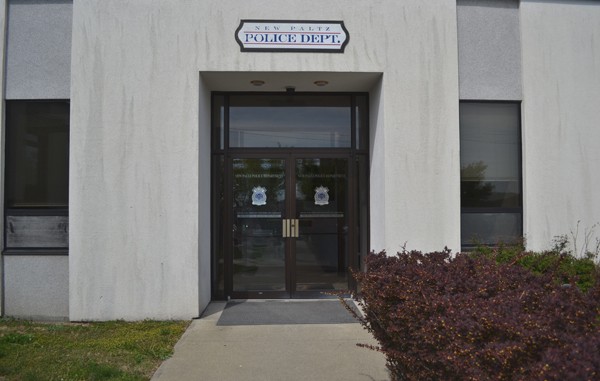
The New Paltz Police Commission (NPPC) has been subject to review and reconstruction over the past few years due to changes between a commission board of civilians to a board of town officials.
NPPC is an organization which has responsibilities concerning matters such as personnel issues between police and residents and financial oversight. An example of this oversight is the commission aiding the New Paltz Police Department (NPPD) in purchasing new patrol cars if needed.
The vote to change the structure of the commission from appointed citizen positions to its current structure of the town board, was passed unanimously by the town board in 2014 and took effect that year. The town board, as the police commission, meets monthly with the leadership of the NPPD. According to Town Council Member Jeff Logan, the current structure has tremendously improved the communication between the leadership of the NPPD and the town board.
“The ability to hire, do budgets, make budget requests, discuss assets and celebrate the hiring of new individuals has paid back and saved the community in efficiency and actual dollars,” Logan said. “In my research I found that the Police Commission is an added layer of bureaucracy that created more work and reduced transparency and efficiency for department leadership, rank and file, labor attorney, town attorney, town employees and the town board.”
According to Deputy Supervisor Dan Torres, the removal of the citizens from the board was because these citizens should not be entrusted to be responsible for the finances of the commission. However, Torres disagrees with this notion and argues the fact that the citizens never had the authority to use any town funds without the recommendation and approval of the town board.
Torres said that there are a few routes for the commission’s potential reconstruction. Of which include a full citizen board, as it was in past years, or a “mixed” board comprised of New Paltz citizens and the town officals.
“Having citizens of New Paltz on the commission is positive because it removes the political aspect of it all,” Torres said.
Logan said that he has proposed for several years the creation of a civilian review board that would work with the NPPD on interaction and outreach in the community. However, Logan pointed out that NPPC meetings are open to the public and they do not have high attendance of New Paltz citizens, therefore it may not be plausible.
“I am more than happy to continue and propose but in the past it never seemed to get the majority of board to support,” Logan said. “I have been discussing the restructure of the police commission from appointed to town board since 2010 when Supervisor Hokensen was our supervisor. I proposed at the same time and wrote the resolution to create a civilian review board.”
Further conversation on the commission’s potential reconstruction will take place at the next NPPC meeting on Thursday, March 17.
